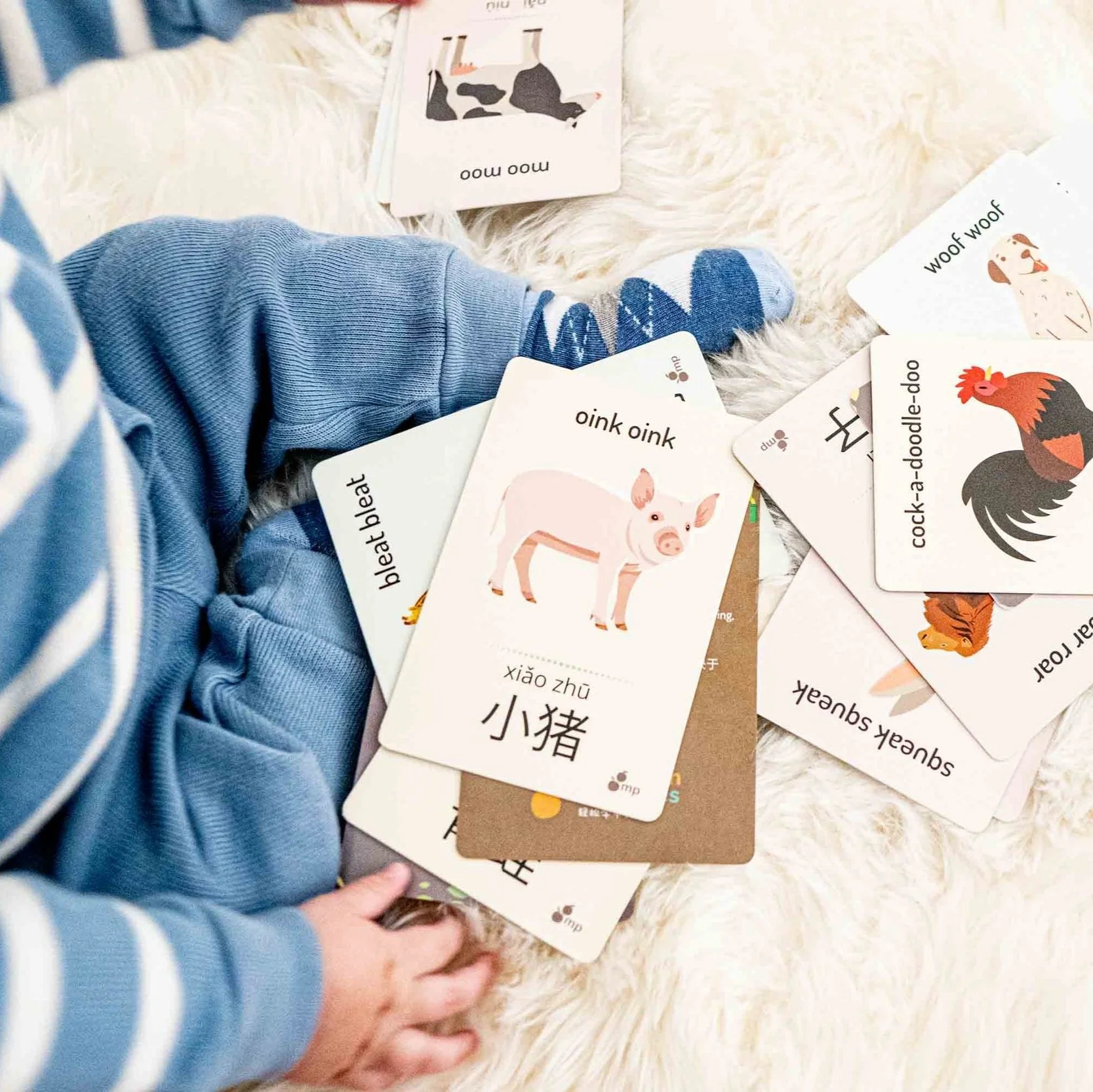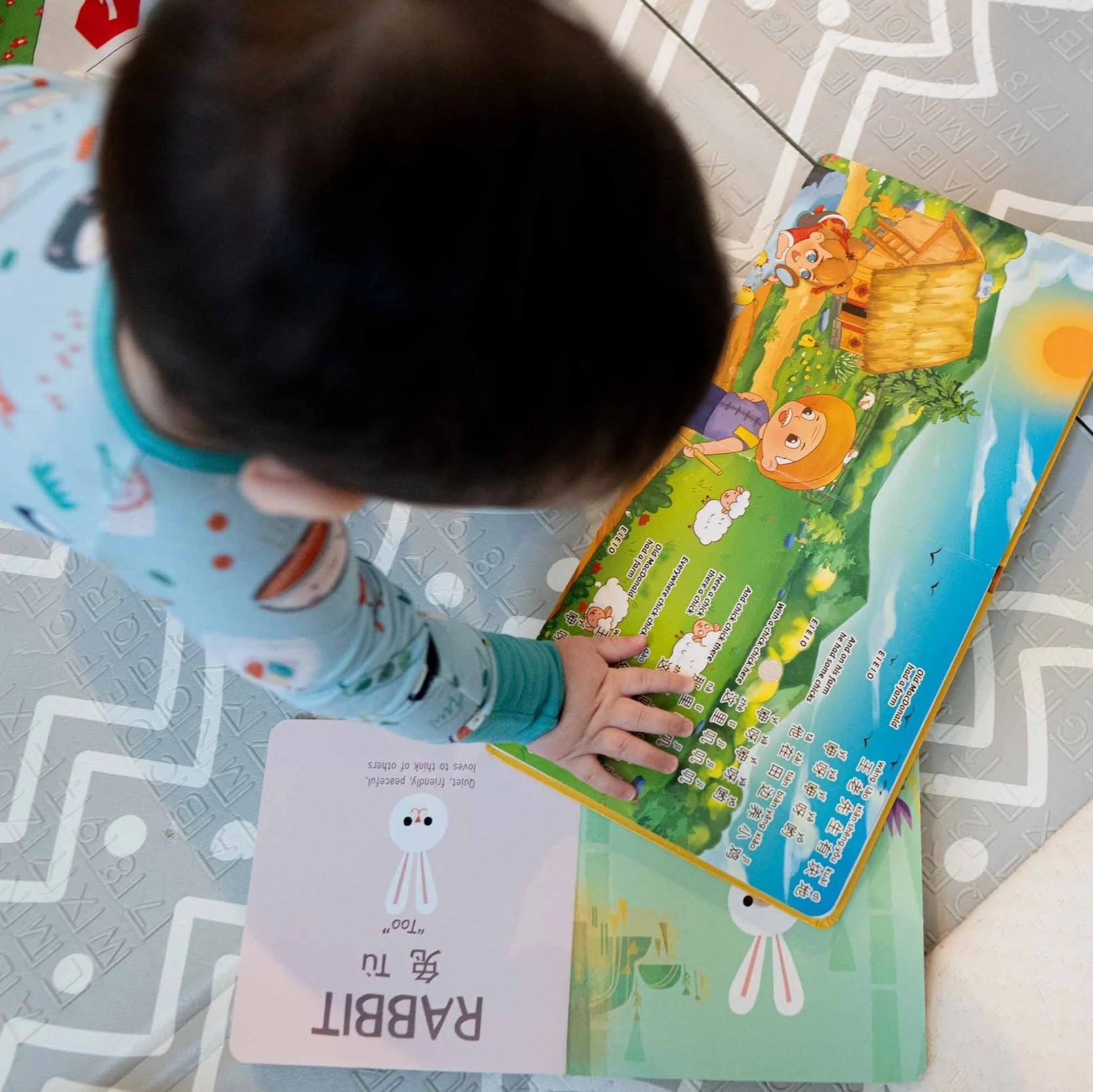3 Easy Ways to Teach Children Chinese at Home
As a Taiwanese-American, I've always been proud of my heritage and culture. And when I became a parent, I was thrilled to pass along some of that pride to my children by teaching them about the language and history of Taiwan.
But, one thing became apparent: There just aren't many opportunities for us here in the US for our kids to learn about Chinese culture. So rather than let it fade away into obscurity, we decided on our own plan for keeping Chinese alive at home. Here are some ideas!
There are lots of ways to teach kids Chinese that are fun and easy.
Some kids are naturally more inclined to speak and learn Chinese, but even if your child doesn't seem like he or she wants to learn it, there are plenty of ways to get them interested.
Storytelling is one way that children can learn Chinese. When you tell stories in Mandarin, they will be more likely to remember them and begin speaking the language themselves.
Music is another great way to get kids learning Chinese because the rhythms help children recognize words better than any other method (which makes sense because music itself has a strong rhythm).
Books are also a good tool for teaching kids Chinese because they can be read anywhere--in school classrooms or on airplanes--which means that they're easy for parents and teachers alike!
Engage your kids through storytelling.
As you know, Chinese culture is rich in history and tradition. But as a parent, you may worry that your child will not have the same appreciation for these aspects of Chinese culture as you do—or even any interest at all. You can help keep Chinese culture alive by engaging them through storytelling.
Here are some ideas:
Read stories from a book of traditional Chinese folk tales or fables. If your child doesn't understand what's written on the page, find pictures from an online dictionary that illustrate each word and use those to explain what's happening in the story.
Use picture dictionaries for more advanced children who are reading independently but struggling with characters. The words in these books are presented visually so that children can learn to recognize them faster than if they had to sound out each character every time they encountered it in context.
If you want to get creative, make up your own stories based on what's happening in your life. For example, if you're cooking dinner together and your child asks why the rice is so fluffy and white after adding the vinegar, tell them a story about how they helped a little girl named Snow White make her own magic rice.
Try Chinese music.
Chinese music is a great way to learn language, and it’s easy to learn. It appeals to the ears, which makes it popular with children. If you can use this tool in your home, it will be easier for your kids to learn Mandarin because they’ll enjoy listening to Chinese songs as well as learning them.
As an added bonus, Chinese music is also very diverse and interesting—you may find yourself listening to new types of music that are not familiar from what you were used before!
Use books written in Chinese.
As a parent, you can introduce your child to Chinese culture by reading him or her picture books. There are many great children's books written in Chinese and translated into English, allowing you to read them together with your child.
In addition, there are also many excellent bilingual Chinese/English picture books available for parents who want to teach their children some basic Chinese phrases but don't know how.
If you're looking for something more advanced, try searching online for bilingual versions of traditional stories from China's history and mythology; these may be available in both English and Chinese versions!
Keep up the momentum by practicing regularly, even if it's just for a few minutes.
The most important thing to remember is that it takes consistency to keep a new habit going. Even if you don't have time to practice for long, even just a few minutes of activity will help build the foundation of your practice.
Here are some ideas:
Set aside a specific time each day to practice your Chinese. You could set an alarm on your phone or schedule it in your calendar, so that you don't forget and can focus on the task at hand without other distractions getting in the way (like social media).
Look up Chinese characters online as a daily challenge and share them with friends and family over social media—this will inspire them too! Or mail them postcards from wherever you're traveling or living abroad, or post pictures on Instagram with captions written in Chinese only; this will encourage others who speak Mandarin but aren't confident enough to use their skills yet—and maybe even teach those around them something new!
Conclusion
Chinese culture is a rich and complex one. It has been around for thousands of years, and it’s still evolving today. But what does this mean for you? For starters, it means that there are many ways to keep your Chinese heritage alive at home—even if you don’t live in Asia!
Storytelling, music, and reading books to your children are great ways to start, and as an added bonus, allow you to spend more directed time with your children.
What ideas will you be putting into practice today?



